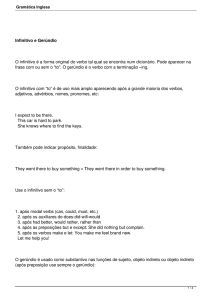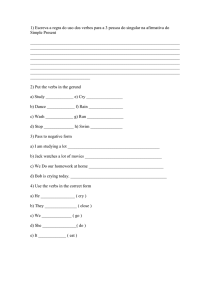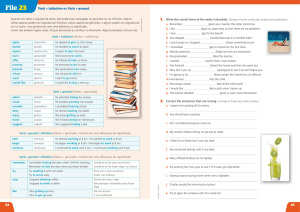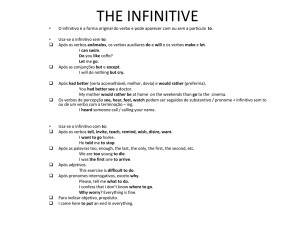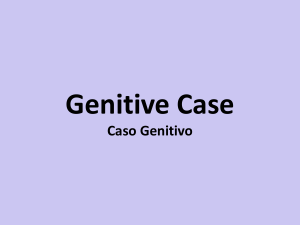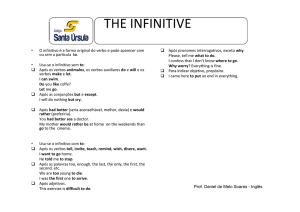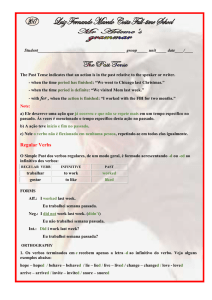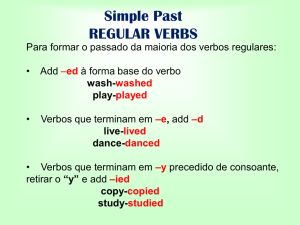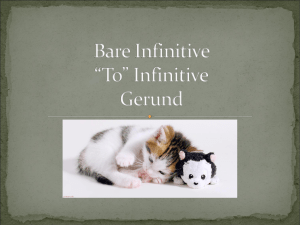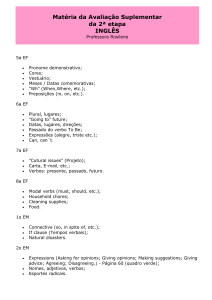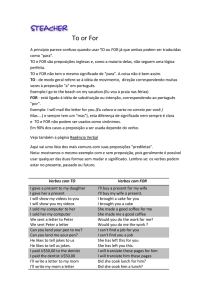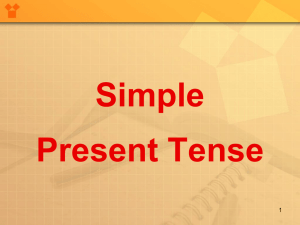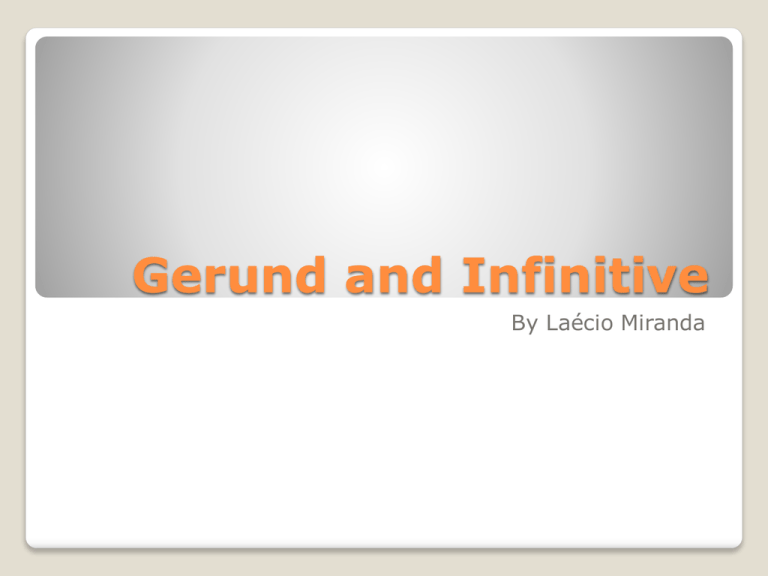
Gerund and Infinitive
By Laécio Miranda
O infinitivo é a forma original do verbo tal
qual se encontra num dicionário. Pode
aparecer na frase com ou sem o “to”. O
gerúndio é o verbo com a terminação –ing.
O infinitivo com “to” é de uso mais amplo
aparecendo após a grande maioria dos
verbos, adjetivos, advérbios, nomes,
pronomes, etc:
Gerund and Infinitive
I expect to be there.
This car is hard to park.
She knows where to find the keys.
Também pode indicar propósito,
finalidade:
They went there to buy something = They
went there in order to buy something.
Gerund and Infinitive
Use o infinitivo sem o “to”:
1. após modal verbs (can, could, must, etc.)
2. após os auxiliares do-does-did-will-would
3. após had better, would rather, rather than
4. após as preposições but e except: She did
nothing but complain.
5. após os verbos make e let: You make me
feel brand new.
Let me help you!
Gerund and Infinitive
O gerúndio é usado como substantivo nas
funções de sujeito, objeto indireto ou
objeto indireto (após preposição use
sempre o gerúndio):
1. Swimming is his favourite sport.
2. He likes swimming.
3. They were prevented from swimming.
Gerund and Infinitive
É usado também após os verbos go e
come indicando atividade física, e na
expressão go shopping:
We’re going riding this afternoon.
When are you going shopping? As soon as
we get our salary.
Gerund and Infinitive
Sempre use o gerúndio após os verbos abaixo:
Admit (Admitir); Understand; (Entender)
Avoid (Evitar); Excuse (Desculpar);
Appreciate (Apreciar) ; Finish (Terminar);
Consider (Considerar); Keep (Manter);
Delay (Atrasar); Mention (Mensionar);
Fancy (Gostar); Mind (Importar-se);
Deny (Negar); Miss (Perder);
Detest (Detestar); Practice (Praticar);
Dislike (Não Gostar); Resist (Resistir);
Enjoy (Desfrutar); Risk (Arriscar);
Escape (Escapar); Quit (Desistir).
Gerund and Infinitive
Da mesma forma com os verbos de
percepção:
Feel; See;
Observe; Notice;
Hear; Watch.
Gerund and Infinitive
Atente para o uso das seguintes expressões
abaixo. Algumas vêm acompanhadas de
infinitivo (com ou sem o “to”), outras de
gerúndio:
1. Had better (’d better): é melhor, seria
melhor - sem o “to” (expressa conselho)
You’d better tell me the truth.
Had she better try again?
You’d better not leave late.
Gerund and Infinitive
2. Would rather (’d rather): preferir
We’d rather stay home.
Would you rather watch tv?
I’d rather not see her now.
3. Used to: costumava; indica ação habitual no
passado:
I used to love you.
Did he use to play tennis as a child?
They didn’t use to go to the movies.
Gerund and Infinitive
4. Be used to/Be accustomed to/ get used to: estar
acostumado a – são sempre seguidas de gerúndio
porque o “to”, no caso, é preposição:
We’re used to getting up late.
5. Can’t help: não poder deixar de – sempre seguida
de gerúndio:
I can’t help falling in love.
6. To be worth/worthwhile: valer a pena
It was worth listening to him.
Gerund and Infinitive

